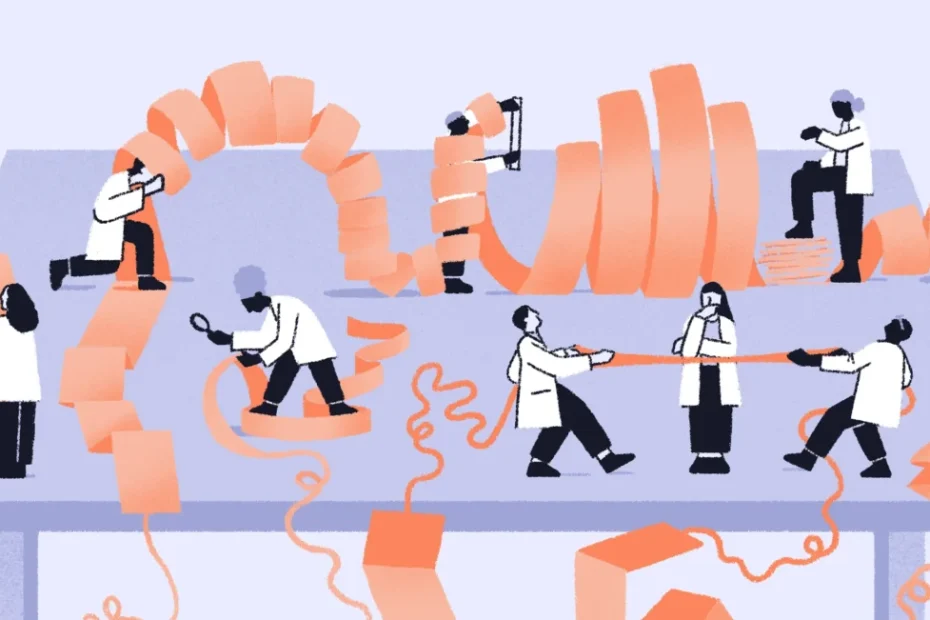Biology has always been the science of life’s mysteries, and 2024 was a year full of surprises. From microscopic organisms shaping ecosystems to discoveries about humanity’s earliest relatives, scientists revealed insights that stretch across the entire tree of life. Let’s take a journey through some of the biggest breakthroughs of the year—told in a way that makes sense without needing a biology degree.
1. Microbes: The Hidden Engineers of Our Planet
For decades, we’ve known that microbes—tiny organisms like bacteria and archaea—are everywhere. But in 2024, researchers uncovered just how much power they really have.
Using advanced DNA sequencing, scientists discovered new microbial communities in deep-sea vents, Antarctic ice, and desert soils. These microbes are not only surviving in extreme conditions but are also producing enzymes that may one day help us design better medicines and clean energy sources.
One key breakthrough: some microbes can capture carbon dioxide far more efficiently than plants, offering a potential tool against climate change. For students, it’s a reminder that the smallest forms of life often do the biggest jobs.
2. The Rise of “Dark Microbes”
Scientists also started talking about “dark microbes,” a mysterious category of life that doesn’t grow easily in labs and has remained invisible to traditional methods. Thanks to metagenomics (the study of genetic material directly from the environment), we’re beginning to map these hidden lifeforms.
Why is this exciting? Because they might hold secrets to new antibiotics or biological tools that could transform healthcare and biotechnology. In a way, it’s like discovering a hidden library of life’s recipes we never knew existed.
3. The Common Ancestor of Modern Life
Another major story of 2024 was about our universal common ancestor—the organism from which all plants, animals, fungi, and microbes descended. Scientists used advanced protein-folding models and genetic analysis to reconstruct what this ancestor might have looked like.
It wasn’t anything like a human, plant, or mushroom. Instead, it was a single-celled organism that lived about 4 billion years ago, probably in hot springs or undersea hydrothermal vents. By studying its genes, researchers think it had a simple metabolism powered by hydrogen and carbon compounds, a reminder that life started in humble yet ingenious ways.
For us, it’s like looking into a family photo album and finally catching a glimpse of the very first page.
4. Ancient DNA Rewrites Our Story
If microbes take us to life’s beginnings, DNA from fossils helps us understand our own. In 2024, breakthroughs in ancient DNA extraction pushed the boundaries of time. Scientists managed to recover genetic material from human ancestors far older than we thought possible.
This revealed unexpected interbreeding between early human species and showed how genes for disease resistance, skin color, and metabolism spread across populations. We’re learning that human evolution was not a straight line but a messy, interconnected web.
5. CRISPR and Gene Editing Take Bold Steps
Gene editing with CRISPR has been in the news for years, but in 2024, researchers achieved greater precision than ever before. New CRISPR variants can edit single bases of DNA with minimal errors.
Why does this matter? It opens doors for treating genetic diseases like sickle cell anemia and muscular dystrophy without affecting other parts of the genome. For everyday people, this means medicine is moving closer to curing diseases at their root.
6. The Future: Biology as a Story of Connections
When we put all these discoveries together, a pattern emerges: biology is about connections. Microbes shape our planet’s chemistry. Hidden “dark microbes” may transform technology. Our common ancestor links us to every other living thing. And ancient DNA shows how deeply intertwined human history really is.
In Simple Words
- Microbes are Earth’s invisible powerhouses.
- Dark microbes are lifeforms we’re only just beginning to discover.
- All modern life shares a single ancestor from billions of years ago.
- Ancient DNA helps us rewrite human history.
- CRISPR is turning into a powerful medical tool.
Final Thought
Biology in 2024 reminded us that life is both ancient and ever-changing. Whether we look at microbes in boiling oceans or DNA from fossilized bones, the story of life is always expanding—and so is our place within it.
